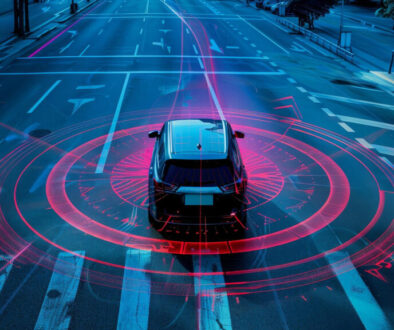Table of Contents
Artificial Intelligence Empowers Climate Change Mitigation and Environmental Sustainability”
5 Ways AI Empowers Climate Change Mitigation and Environmental Sustainability. The emergence of the effects of the ever-evolving world has seen the effects of climate change highly felt in many ways. Therefore, there is a need for various technologies to take place in reducing the cause of the factors. The attention of artificial intelligence technology has been noted through massive data analysis, pattern recognition, and predictions that meet climate change and environmental sustainability. As diverse its application, from optimizing energy to precision agriculture use cases, given the context of AI’s potential is. Thus, I thought it would be beneficial to shed light on how AI is helping to mitigate climate change and promote environmental sustainability.
AI Technologies for Renewable Energy Optimization
Renewable energy brings considerable benefits if utilized properly. Nevertheless, such sources as solar or wind energy depend on external elements, including weather conditions and fluctuations in energy demand. Considering this, Artificial Intelligence fosters a greener future by predicting the patterns of energy generation and consumption. Thus, renewable sources can be integrated into the grid more effectively by AI-driven systems based on complex algorithms, ensuring that green systems operate with optimal efficiency and consistency.
Improving environmental monitoring and conservation.
Preserving natural ecosystems is crucial for biodiversity preservation and climate regulation. AI-based monitoring systems were used along with sensors, drones, and satellite imagery to record changes in the landscape, identify deforestation, track wildlife abundance, and check the health of the environment. As a result, AI provides immediate access to the most important data and analytics of what can be changed and improved.
Revolutionizing Transportation for Reduced Emissions
AI is also transforming other spheres that produce a substantial share of greenhouse gas emissions. The transportation sector may be revolutionized with the help of AI to enable the creation of electric and autonomous vehicles, manage large-scale traffic lights to enable movement for several multiple cars simultaneously, and introduce the AI-powered ridesharing system.
The usage of Artificial Intelligence cars and traffic lights can help AI make drivers who can find the fastest way somewhere and prevent them from accidents. It has been mentioned above, it is possible to claim that AI algorithms developed for this system can analyze traffic congestion data and suggest ways to minimize fuel usage per ride and maintenance for the operator to act in case of any negative deviations.
AI Solutions to Support Sustainable Agriculture
Sustainable farming is also being revolutionized by AI-based technology. Whether it is crop monitoring and yield prediction, soil health examination and pest management, Artificial Intelligence solutions execute the tedious work of making farming more efficient and productive. Precision farming technologies such as targeted irrigation and fertilization, made possible by AI, utilize fewer resources to generate more that promise food safety and climate produce stabilization.
Empowering Climate Modeling and Prediction.
Empowering Climate Modeling and Prediction. Effective climate change mitigation strategies depend heavily on the ability to understand the complexities of the climate system. Thanks to AI, climatology has reached new heights of sophistication, with AI-driven models capable of analyzing enormous amounts of data, running simulations of countless scenarios, and making highly precise predictions about the future state of the climate.
Drawing from a wide array of sources, such as satellite observations, weather measurements from various observatory organizations, as well as oceanic observations, Artificial Intelligence models can help draw an accurate picture of the effects of climate change and provide key information to human decision-makers on what they can do to adapt.
To sum up, the importance of Artificial Intelligence in mitigating climate change and enhancing environmental sustainability is immeasurable. We can optimize resource utilization, decrease emissions, and promote sustainability in all fields by employing AI-driven applications. Notably, AI is not sufficient in and of itself. It necessitates players’ cooperation, investment in R&D, and a responsible application to mitigate the need for the technology. Working together, we can harness the power of Artificial Intelligence to fight climate change and create a better future for future generations.
For more updates, visit Global Insightify
Follow us on Instagram: globalinsightify
Watch the video on YouTube



